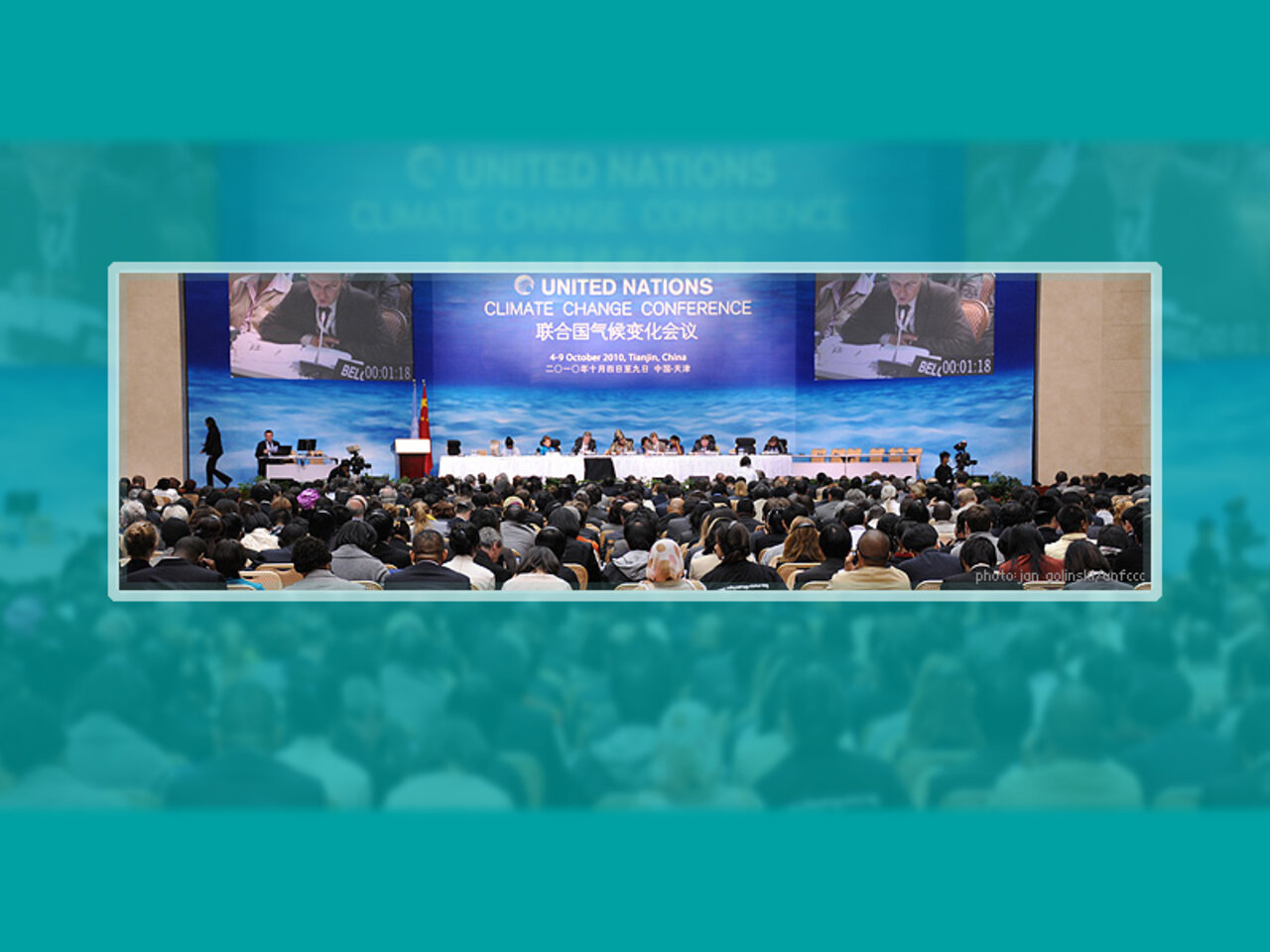Project
Forests in Climate Negotiations - Research for Negotiating

Forests in Climate Negotiations - Research for Negotiating 2.0
The international community has adopted a global climate agreement in Paris in December 2015. From 2020 onwards, all countries commited themselves to reduce their greenhouse gas emissions. The aim is to keep global warming well below 2 ° C. Forests will play an important role in this context.
Background and Objective
Under the UNFCCC the consensus principle applies- all 197 members take decisions jointly. Therefore, participants need to know what consequences proposals of other parties imply and how their own positions can be strengthened. Germany is not only as part of the EU a relevant participant in the climate negotiations. In addition to Norway and UK, Germany is also among those countries which provide large finance to support tropical countries in their efforts to stop the local deforestation. REDD+ ist the official UNFCCC framework for the reduction of emissions from deforestation and forest degradation in the tropics.
With our research we support the Federal Government in climate negotiations relating to forests. We provide suggestions to improve existing content and identify potential developments and the resulting implications for forests, especially in the tropics.
Approach
We study current issues developing from ongoing negotiations. Based on existing literature and data we publish Working Papers, Policiy briefs and journal articles.
Results
We assessed the Brazilian REDD+ reference level submission under UNFCCC and 5 other submissions. Focus was on implications on climate effectiveness and cost-efficiency. With given rules for REDD+ under UNFCCC, both could be undermined. More climate efficient rules could release the pressure on the available funds.
Hundreds of projects currently implement features of the UNFCCC REDD+ framework. While the framework is built for national implementation, the single projects can be understood as REDD+ on the ground. With a literature review we found that the experience with the specific REDD+ tools on the project level is not yet convincing. Classical development issues are more advanced. In general, the future implementation on the national level should keep a focus on transformational change.
Links and Downloads
Thünen-Contact

Involved Thünen-Partners
Ehemalige Thünen-Mitarbeiterinnen und Mitarbeiter
- Yvonne Hargita
Publikationen
- 0
Hargita Y, Günter S, Köthke M (2016) Brazil submitted the first REDD+ reference level to the UNFCCC-Implications regarding climate effectiveness and cost-efficiency. Land Use Pol 55:340-347, DOI:10.1016/j.landusepol.2015.08.027
- 1
Hargita Y, Gerber K, Oehmichen K, Dunger K, Rüter S (2016) Die Umweltauswirkungen der Landnutzung, Landnutzungsänderungen und Forstwirtschaft (LULUCF) in einem zukünftigen Klimaschutzabkommen : Endbericht [online]. Dessau: Umweltbundesamt, 125 p, Climate Change 2016/32, zu finden in <http://www.umweltbundesamt.de/sites/default/files/medien/377/publikationen/2016-11-15_lulucfpost2020_uba-abschlussbericht_final.pdf> [zitiert am 22.11.2016]
- 2
Fischer R, Hargita Y, Günter S (2016) Groundbreaking news? : Analytical insights and lessons learned from a review of multinational REDD+ studies. Unasylva 67(2-3):52-60
- 3
Fischer R, Hargita Y, Günter S (2016) Insights from the ground level? A content analysis review of multi-national REDD+ studies since 2010. Forest Pol Econ 66(1):47-56, DOI:10.1016/j.forpol.2015.11.003
- 4
Hargita Y, Rüter S (2015) Analysis of the land use sector in INDCs of relevant Non-Annex I parties. Braunschweig: Johann Heinrich von Thünen-Institut, 82 p, Thünen Working Paper 50, DOI:10.3220/WP1447228551000
- 5
Hargita Y (2015) Assessing the relevance of countries and their capacities for reporting forests under UNFCCC post 2020 : [paper for] XIV World Forestry Congress, Durban, South Africa, 7-11 September 2015. 12 p
- 6
Hargita Y (2014) Assessing the relevance of countries and their capacities for reporting forests under UNFCCC. Hamburg: Johann Heinrich von Thünen-Institut, 49 p, Thünen Working Paper 36, DOI:10.3220/WP_36_2014
- 7
Köthke M (2014) Climate change mitigation through forest management, afforestation andavoided deforestation : analysis of accounting approaches. Hamburg: Univ Hamburg, Fachber Biologie, 101 p, Hamburg, Univ, Fachbereich Biologie, Diss, 2014
- 8
Köthke M (2014) Costs of Sustainable Forest Management in the Tropics - State of Knowledge. Hamburg: Johann Heinrich von Thünen-Institut, 25 p, Thünen Working Paper 27, DOI:10.3220/WP_27_2014
- 9
Köthke M, Leischner B, Elsasser P (2013) Uniform global deforestation patterns - an empirical analysis. Forest Pol Econ 28:23-37, DOI:10.1016/j.forpol.2013.01.001
Duration
1.2015 - 12.2018
More Information
Project status:
finished







